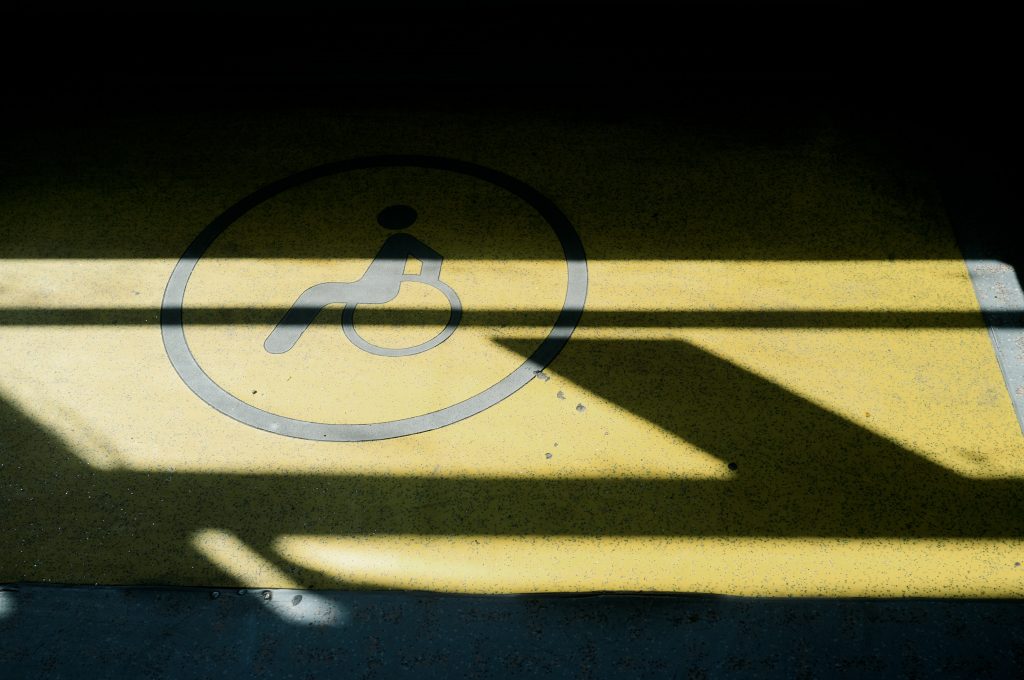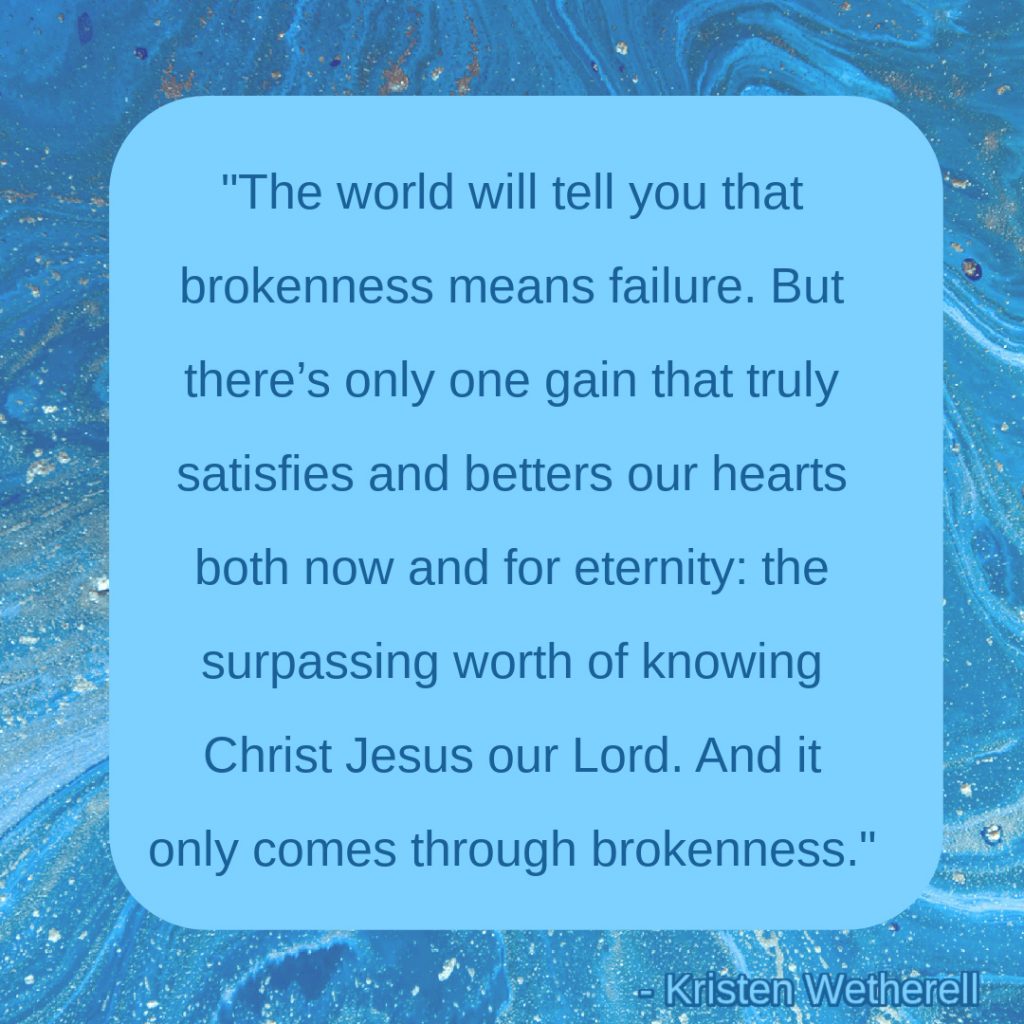I sometimes envy people who are able to take life at face value, living out their days without over-analysis or intensive probing and rethinking.
That is not me.
I regularly examine every facet of my existence, reflecting on what is going well, what needs improvement, and how I’m measuring up to the ever-shifting standards I’ve put in place. There are few areas I ruthlessly scrutinize quite so intently as that of my role as a mom. And it was through this self-critical lens that I recently read an interview with a mom who is disabled.
As I studied images of a wheelchair-bound mom cradling a pregnant belly, rocking a newborn, and lifting a squirming toddler from her chair, my gut reaction was one of recognition and relatability : “She’s parenting her child through her disabilities—just like me.”

I don’t mean for my comparison to diminish this disabled mother’s challenges in any way, but if I’m honest with myself, I have to admit that my own disabilities—while perhaps not as visible to the rest of the world as this other mother’s wheelchair—affect my children every bit as much as the physically disabled woman’s inert legs impact hers. My eating disorder deprives me of energy needed to fully engage with them and keeps me from participating in meals and social activities in meaningful ways. My anxiety and depression prevent our family from going on as many outings or playdates as would likely be best for them. My Obsessive Compulsive Disorder renders me uptight about messes, chaos, and small imperfections within our home. These are not small things, and I see how they are shaping my children’s formative years.
In reading that article and relating it to my own experience, I was ashamed as I mulled over my disabilities and their consequences. I quickly spiraled into deep, painful regret related to my own inadequacies. On further reflection, though, I began to wonder how many other mothers would be able to see themselves in the words of this mother with physical disabilities. Would it a handful of readers? Maybe a quarter of us? Maybe more? Was it possible that EVERY mom reading about a woman mothering from her wheelchair would be able to relate, at least in some small way? Because really, as moms, aren’t we ALL a little “disabled”? Even the best mothers are still human. And the last time I checked, there has only been one human in all of history who could claim Perfection status, and He was not a mom.
When I think about the young son of the woman in the article, my mind immediately leaps to the unique gifts this mom is giving to her child—not in spite of her disabilities, but because of them: As the child of a mom who lives in a wheelchair, her son will likely have greater empathy (or at least a better understanding) for individuals who look and act and have different abilities from him. . . I can imagine he will be more independent and mature—or at the very least, less coddled—than his peers. . . . And most powerful of all, he is getting a front row seat to his mom’s resilience, courage, and refusal to bend to limiting expectations—amazing lessons that will surely shape him for the rest of his life!
If the disabilities of this other mother are able to benefit her child, is it fair to assume that the same could be true for my own family? Could it be possible that my kids will come away from a childhood with me—a mom with often-crippling mental health struggles—with more than just baggage, damage, and resentment, but also a few unique and unexpected perspectives or skillsets of their own?
Throughout the Bible, God used people’s brokenness to accomplish His Kingdom purposes. If God could harness the advantages in Ruth’s widowhood, Rahab’s profession as a prostitute, Hannah’s barrenness, Leah’s unattractiveness, Martha’s anxiety, Sarah’s advanced age, Mary’s singleness, and Esther’s inconvenient ethnicity, surely He can make productive use of my own disordered and disabled brain. Perhaps my unfortunate weaknesses might actually serve as kindling for my children’s strengths.

I’ve heard many well-meaning teachers encourage moms by saying, “God made YOU to be the mother of your children, because you are the exact mother they need.” Without delving into the complex theology of this statement (because if those words are true, they must also be true for the orphan or the child of an abusive or addicted parent, and that’s not something I’m prepared to acknowledge), I do believe that God equips us for the work He would have us do. He has given me every skill I need to be the right mom for my kids. And THANKFULLY He is more than capable of filling in the gaps in those areas and moments where I am NOT the mom that they need. Because He loves them more than I ever could, and His care for them is far greater than even the best human mother could provide.
I believe God’s Word when it says God will work all things for the good of those who love Him. His definition of “good” might not look like mine—in fact, it probably won’t. His “good plans” for my children might not involve an easy childhood or pain-free adulthood. But I trust that God is working behind the scenes to accomplish His purposes in my kids—in spite of, and maybe even because of, their status as children of a disabled mom.
I may be parenting through my disabilities. But no level of mental or even physical impairment could prevent me from loving my children wholeheartedly, and praying fervently for God’s ultimate sovereignty over every facet of their non-idyllic but abundantly blessed young lives.
Well, I’m blown away by all you DO do, that schedule, nursing, homeschooling Charleston, keeping house to standards of perfection, reading reading reading, always striving to be better, and just having 3 small children at once!! Yikes! I feel selfish and pampered by comparison. Oh, and you keep this beautiful blog! I call you Super Mom!
Your children are deeply loved and they are safe…what an amazing gift they are receiving! You are an awesome mom!